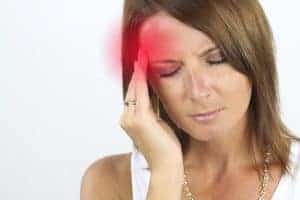Read Time: 5 Minutes
Meniere's Disease is a debilitating condition that can severely affect your health and well-being.
This article looks at:
Meniere’s disease is a condition first identified by a 19th century French doctor named Prosper Meniere. It affects the inner ear as a result of an abnormal buildup of fluid.
Not surprisingly, this buildup affects balance and, as a result, sufferers experience vertigo and nausea. They also describe their ears feeling blocked or ‘full’. Often their hearing is affected by tinnitus.
The reason for the fluid buildup is not known and there has been speculation that it could be related to pressure in the inner ear or a chemical imbalance in the fluid found in the inner ear.
What Can Trigger a Meniere's Attack?
Doctors suggest a number of things which may trigger an attack. These can include:
- Head injury
- Ear infections
- Allergies
- Alcohol use
- Stress
- Side effects of certain medications
- Smoking
- Stress or anxiety
- Fatigue
- Family history of the disease
- Respiratory infection
- Recent viral illness
- Abnormal immune response
- Migraines
What Are Some of Meniere's Disease Symptoms?
 Unfortunately, there is no cure for Meniere's Disease but there are some things you might be able to do to lessen symptoms.
Unfortunately, there is no cure for Meniere's Disease but there are some things you might be able to do to lessen symptoms.One of the challenges in accurately diagnosing Meniere’s disease is that there are a wide number of triggers and symptoms. Some people might display few symptoms, others might have some or even many of these:
- Loss of balance
- Dizziness
- Feeling lightheaded
- Headaches
- Pressure in the ear
- Hearing loss
- Sound sensitivity
The symptoms can worsen to main debilitating :
- Vertigo - Vertigo is a feeling that you are dizzily turning around or that things are dizzily turning about you.
- Tinnitus - Tinnitus (ringing in the ears) is a ringing, buzzing or humming noise that you hear in your head that is not coming from an external source.
Meniere’s disease is most commonly reported by people aged in their forties and fifties, although it can happen to anyone at any age.
Some people have the condition in one ear only; others in both.
Some sufferers can go many years without an attack; others may be stricken every few weeks . Sometimes the symptoms are mild, at other times they can be severe, leaving the sufferer bedridden.
Typically attacks are between two to four hours in duration.
Is There A Cure?
Unfortunately there is no cure for the condition, but there are some things people can do to help alleviate their symptoms.
Reasons for a Meniere’s attack are as diverse as their sufferers, but some people have found a measure of relief following these recommendations:
- Dietary changes such as a salt-reduced diet, avoiding caffeine and nicotine
- Practicing stress and anxiety management techniques
Of the two Meniere’s major and most debilitating conditions, vertigo and tinnitus, vertigo can be successfully treated with anti-nausea medicines and antihistamines. Tinnitus is a little more challenging to deal with.
Although the attacks of vertigo may decline with time, the hearing loss and tinnitus generally persist.
The good new is hearing aids may provide some significant benefits. They can be used to reduce the loudness of the head noise. Loud tinnitus is much more annoying than soft.
Hearing aids can give you a sense of control over the noises in your head. Using a masking function you can drown out the annoying noise when you choose.
This is why it is also important to have a speech in noise test as part of your hearing assessment.
Further Reading
Value Hearing cares about you and your on-going hearing health. We have articles on other causes of hearing loss here.
- What Is Surfers Ear?
- What Is An Outer Ear Infection?
- How Noise Hurts Your Hearing (Even If You Can't Hear It)
- The Problem With Noise Needs To Be Out In The Open
- Ear Wax, Friend Or Foe?
- How To Safely Remove Ear Wax At Home
- How To Protect Your Hearing During Cold and Flu Season
- Health Issues That Affect Hearing